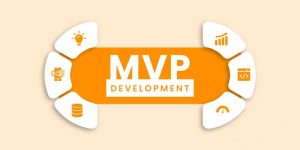How To Automate Your Sales With CRM?

How To Automate Your Sales With CRM?
Customer relationship management tools help businesses to improve their relationship with customers. Besides, it allows companies to improve service delivery, lower costs and increase ROI. Business process automation is one prominent feature of CRM that businesses take advantage of to reduce repetitive processes and activities.
Businesses that are looking for a sound CRM system should therefore prioritize business automation features. With the right Sales CRM, sales reps can knock out crucial but time-consuming tasks using the sales management platform and have enough time to concentrate on what they do best.
In this article, we emphasize some of the ways you can automate sales with CRM.
Table of Contents
1. Lead Scoring And Prioritization
Whatever the kind of business, you will never meet equal leads. That is to say, that leads will not similarly interact with your business, and you should not treat them equally.
It is, however, not easy to know who is more likely to buy and who is not. That is why you need a lead scoring system to help you identify when it is the right time to connect.
CRM automation monitors customer interactions with your company. It is awarded specific points when they read emails, engage with a piece of content on your page or interact with your business in any way. As the points accumulate, it becomes easier for the sales CRM system using reps to know the leads who are closer to buying from your store.
Also, you can use this CRM feature to assign weight to the different kinds of interactions. This makes it easier to understand which lead is more likely to convert and even when.
2. Scheduling Calls And Meetings
Scheduling meetings and calls are yet another business activity that is more likely to waste your time. Usually, when you suggest a suitable time, the prospect may find that inconvenient and make other suggestions. Alot of time is then wasted in the process of trying to find a reasonable compromise.
As time goes, the prospect may either lose interest or encounter a competitor. This is where a scheduling tool comes in. CRM automation helps you instead share a calendar with your prospects. They select their preferred time and complete the schedule themselves.
Besides, you can make your calendar more organized by adding restrictions to block double-booking or scheduling actions during other commitments.
3. Streamline Invoicing And Admin
Invoicing and admin are other critical elements of closing deals that may make your business efficient or slow. Once the salespeople close a deal with prospects, they should manage a complete sales cycle and not be bogged down by a busy admin when making more sales.
You can easily use CRM automation solutions to hand over-invoicing and admin. With two-way contact sync between the invoicing tool and CRM, both teams will understand what’s in the pipeline, and closing deals together with invoicing becomes more effortless.
4. Sync Contact Data Between All Tools
If your business uses multiple apps to drive sales, the lack of synchronized data may be a significant downfall. Contact sync reduces the scope of human error, saves you time on manual updates, and improves sales automation as all your data is accessible in a centralized platform.
5. Collect Customer Satisfaction Data By Salesperson
Customer satisfaction is a crucial element of business as it determines whether customers will buy and stay long-term or not. Sales teams, therefore, track customer satisfaction as their top KPI and is more rewarding to businesses.
6. Use Personalization Tokens For Tailored Communication
Several businesses try to avoid automation of long and short sales cycles to keep their messages from sounding robotic and impersonal. There are, however, several personalization tokens that a company can use to sound more authentic, even with automated communication. These include mentions of industry, business names when you last spoke, and content conversions with CRM software, among many more.
Also Read: What Is Remarketing, And Why Is It Vital?







